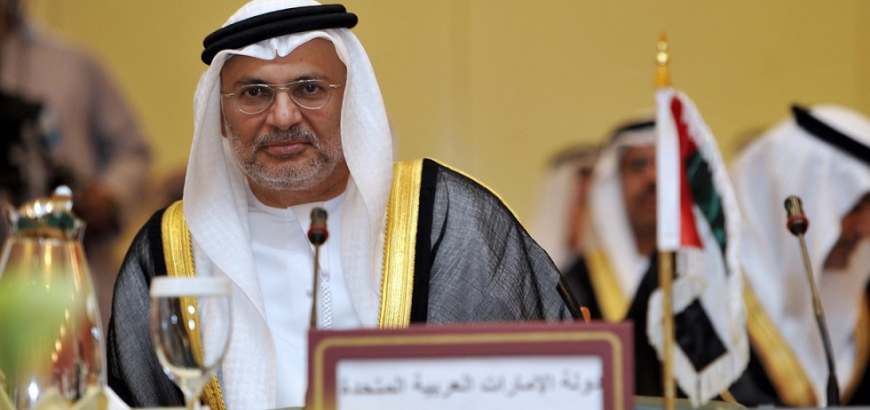UAE Foreign Affairs Minister Dr. Anwar Gargash said that Syria has been diplomatically failed by the international community and the Arab world. He says the conflict, which has now killed more than 500,000 people and displaced millions, is likely to continue and that expelling Syria from the Arab League was a mistake.
Dr Gargash believes the war in Syria is set to continue, with only a few good options available.
"Currently, countries involved in Syria are found in a situation whereby support of one side will likely result in the sponsoring of terrorist entities," Dr Gargash says.
"The other [would involve] complicity with a leader who's been responsible for the worst humanitarian crisis seen in the Arab world.
"The choice between an Al-Qaeda based opposition, or Assad is a false choice. Don't try to present us with this choice. We think a political process is the option, because this alone will resolve the crisis in Syria, but diplomacy has been failing in Syria," he says.
However, the Arab role in bringing about a political solution has been limited and compounded by the expulsion of Syria from the Arab League. As a result, Iran, Turkey and other non-Arab countries, notably Russia, have taken an increasingly prominent role in Syria.
"I think it was a mistake to kick Syria out of the Arab league, it meant we had no political leverage at all, no open channel. We could not present an Arab prism on how the Syrian issue should be resolved," says Dr Gargash.
That decision meant Arab powers found themselves excluded from meetings on Syria. Turkey, Russia and Iran – three countries whose presence in Syria remains troubling to Arab countries and the United States – created their own "Astana peace process", an effort that has foundered in parallel to a UN-backed effort at ending Syria's civil war.
However, allowing Syria back into the Arab League would also present the 21 other member states with a dilemma.
"We are in a conundrum because readmitting Syria into the Arab League would create a lot of fissures," says Dr Gargash.
"At the same time re-admitting Syria without igniting a real political process would perhaps create more complexities."
One of those complexities is Russia's involvement in Syria, alongside Iran.
Russia's goal, says Dr Gargash, is to support President Assad but also to use Moscow's growing influence in the Arab world to purge the region of terrorism without getting stuck in a long-term military engagement. Iran, however, has alternative motives, he argued.
"Iran's interest is different. It is trying to create a sphere of influence in Syria, part of a creeping Iranian geostrategic plan in the Arab world that we've seen in Iraq and Lebanon, they have attempted the same in Bahrain and Yemen," he adds.
This article was edited by The Syrian Observer. Responsibility for the information and views set out in this article lies entirely with the author.


